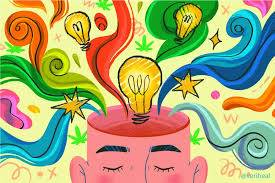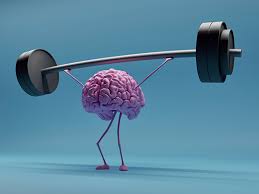As McKnight Brain Research Foundation Trustee, Dr. Roy Hamilton, shares in this Men’s Journal article, making healthy lifestyle choices, like exercising regularly, following a healthy diet and managing stress, is currently the best way to protect your cognitive health. Dr. Hamilton specifically suggests the importance of challenging the brain with new activities, controlling cardiovascular risk factors and staying social as a few of the lifestyle strategies that can make the biggest difference for long term brain and cognitive health.
At Home Alzheimer’s Tests are Here: Proceed with Caution
McKnight Brain Research Foundation Trustee, Dr. Sharon Brangman, recently spoke with AARP about the blood tests for Alzheimer’s disease that became available in May and November of 2025 and the at-home tests many companies are now offering. Dr. Brangman, chair of geriatric medicine at SUNY Upstate Medical University, emphasized how essential the interaction between patient and physician is for an accurate diagnosis of Alzheimer’s.
These 8 Money Mistakes Could be Signs of Dementia
Bonnie Levin, PhD, Associate Director of the Evelyn F. McKnight Brain Institute at the University of Miami, recently spoke with the New York Post to offer insights on how dementia may impact an individual’s ability to make sound financial decisions. The article below originally posted by the New York Post on September 30 includes insights from Dr. Levin on the red flags that may signal dementia and how to protect seniors from financial exploitation.
10 Habits to Build a Healthy Brain and Gear Up Strong for Year End
MBRF Trustee, Dr. Roy Hamilton, recently spoke with Forbes.com to share his key tips to help people maintain and strengthen their brains with age.
The 6-6-6 Walking Challenge Reduces Workday Stress and Job Burnout
MBRF Trustee, Dr. Roy Hamilton, recently spoke with Forbes.com to share his insights on the brain benefits of the viral 6-6-6 walking challenge, an interval workout that uses numerical structure: starting at 6:00am or 6:00pm, alternating between a fast walking pace and a comfortable pace every 6 minutes, for 60 minutes 6 times a week. Dr. Hamilton says, “Walking briskly for 60 minutes a few times a week offers a great amount of aerobic exercise, which is good for brain health.”
Lifespan, Healthspan…Now Brainspan?
MBRF Trustee, Dr. Patricia Boyle, recently spoke with Flow Space to discuss brainspan – an emerging term to describe the brain’s ability to flourish throughout the lifespan. She explains “Brainspan is specifically related to a person’s ability to function cognitively throughout their life, including maintaining mental clarity, decision-making skills, creativity and focus.” To put brainspan in context with terms like lifespan and healthspan, Dr. Boyle adds, “Brainspan aims to look holistically at how a person’s brain and cognitive function will likely change throughout life. It aligns with lifespan and healthspan through shared influences like genetics, environment, disease and biological aging, but divergences will typically occur later in life, when chronic diseases or dementia begin to take a toll.”
Doctors Say These 9 Habits Can Actually Make You Smarter and More Creative
In a recent interview with Real Simple McKnight Brain Research Foundation Trustee, Dr. Sharon Brangman shared her thoughts on research-backed lifestyle changes that can sharpen memory and keep your brain agile with age. She focused on three key tips: maintaining a consistent sleep schedule; getting 30 minutes of light-moderate exercise per day; and challenging your mind by learning a new hobby, like knitting, reading or painting.
Even Healthy Brains Decline with Age. Here’s What You Can Do
NPR, Science Correspondent, Jon Hamilton, attended the MBRF Inter-Institutional meeting in May to hear presentations on the latest research happening at the McKnight Brain Institutes. Jon spoke with meeting attendees Drs Christian Agudelo, Matt Huentelman, and Charles DeCarli about the impacts their specialties—from sleep quality to cognitive testing and blood pressure—have on healthy brain aging. Alice Luo Clayton, neuroscientist and Chief Executive Officer of the MBRF, noted, “We’re going to have to understand [brain] aging at a mechanistic level” to preserve cognitive function later in life.
Want to Improve Focus? Consider Deleting this One App
Do you feel overwhelmed and distracted by constant phone notifications? MBRF Trustee, Dr. Patricia Boyle, spoke with PARADE Magazine about the cognitive and mental health benefits of deleting the email app from your phone. “Fast-paced multitasking adds to our cognitive load and negatively impacts attention and focus,” Dr. Boyle explained, noting that our brains aren’t built to keep switching from one app to another.
These Free At-Home Dementia Tests Can Detect Early Signs of Cognitive Impairment in Minutes
MBRF Trustee, Dr. Patricia Boyle, recently spoke with Woman’s World about the online cognitive tests available to help people track changes in their cognition and memory over time and take a proactive approach to maintaining their brain health. “With any self-administered cognitive assessment, it’s a good idea to consult a doctor and share your test results to discuss what may be causing the changes you’re experiencing (in memory) and how to best address them,” she said.
- Page 1 of 2
- 1
- 2










